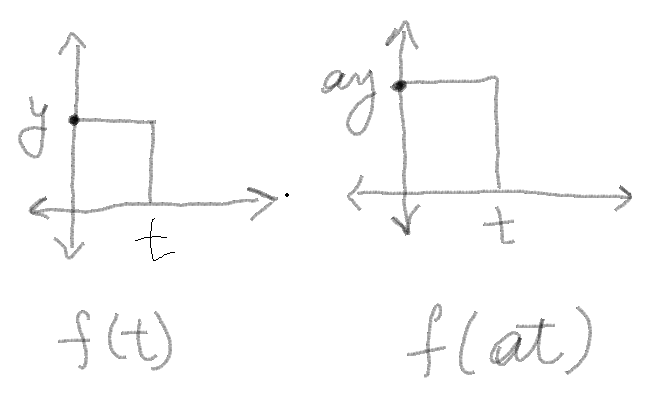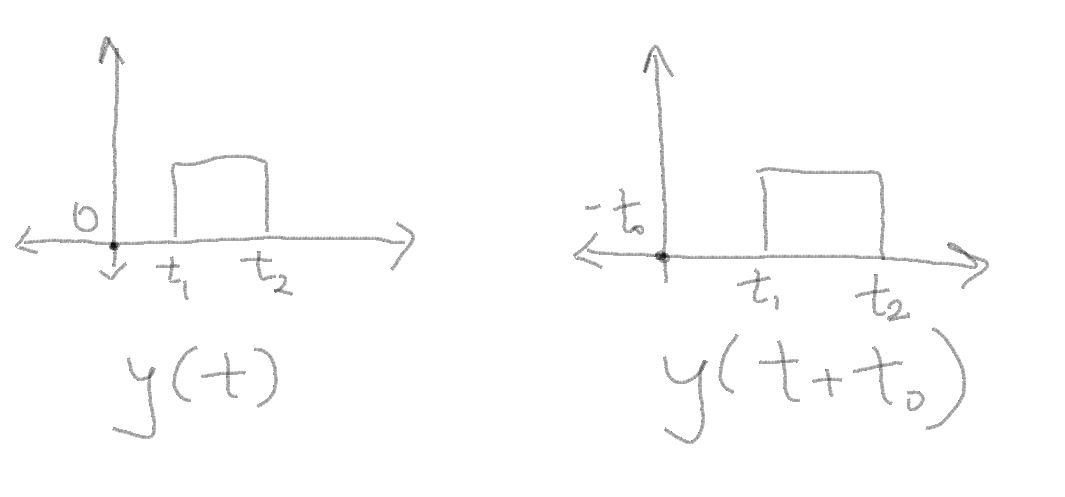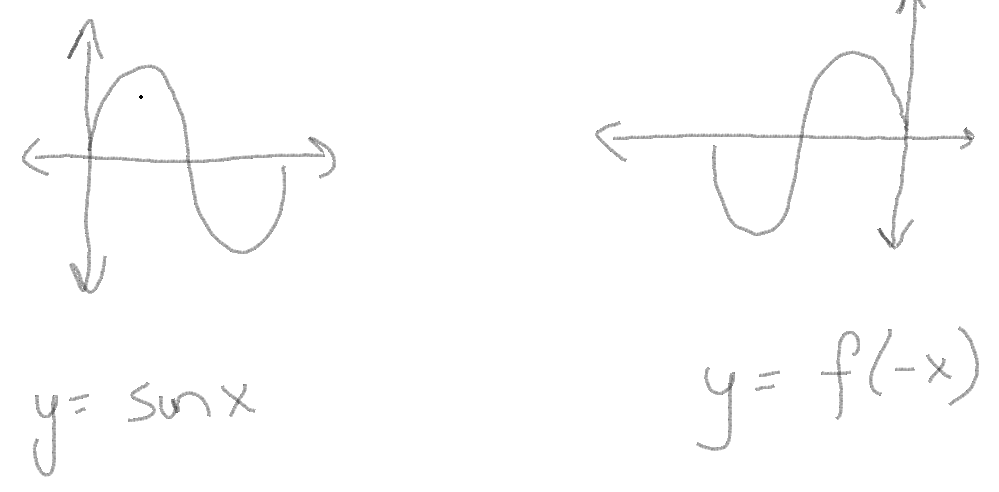| Line 1: | Line 1: | ||
Time dependent changes- | Time dependent changes- | ||
| − | 1. Time delay- In simple terms you are shifting the original signal by a factor. For eg. | + | 1. Time delay- |
| + | In simple terms you are shifting the original signal by a factor. For eg. | ||
[[File:Graph1.1.PNG|Time shift example]] | [[File:Graph1.1.PNG|Time shift example]] | ||
In this example as you can see, a simple way of understanding time shift/delay is by looking at how the graph changes when you want a shift in the signal. | In this example as you can see, a simple way of understanding time shift/delay is by looking at how the graph changes when you want a shift in the signal. | ||
| − | 2. Time scaling- In simple terms you are shifting the height/width of the graph of a signal. | + | 2. Time scaling- |
| + | In simple terms you are shifting the height/width of the graph of a signal. | ||
[[File:Graph1.2.PNG|amplitude scaling graph example]] | [[File:Graph1.2.PNG|amplitude scaling graph example]] | ||
| Line 11: | Line 13: | ||
3. Time reversal- | 3. Time reversal- | ||
| + | When you negate the independent variable, the graph of the dependent variable changes to a mirror image of the original graph. | ||
[[File:Graph1.3.PNG|time reversal]] | [[File:Graph1.3.PNG|time reversal]] | ||
Revision as of 20:58, 1 December 2018
Time dependent changes-
1. Time delay- In simple terms you are shifting the original signal by a factor. For eg.
In this example as you can see, a simple way of understanding time shift/delay is by looking at how the graph changes when you want a shift in the signal.
2. Time scaling-
In simple terms you are shifting the height/width of the graph of a signal.

The change in graph depends on the value of a. If |a|>0, then the height increases, else it decreases.
3. Time reversal- When you negate the independent variable, the graph of the dependent variable changes to a mirror image of the original graph.



